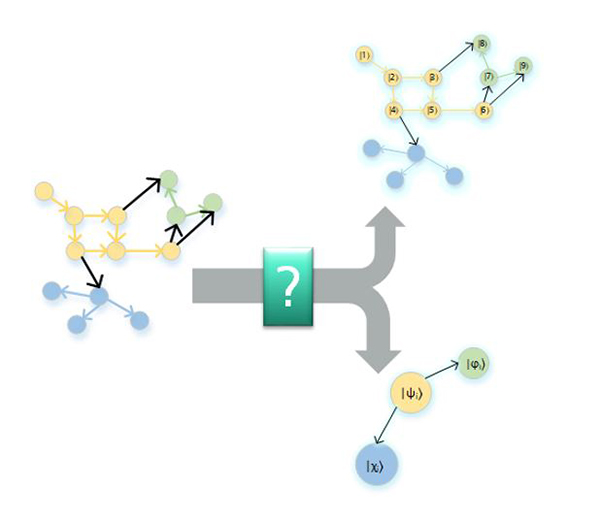
Scientists from the project EFFEKTIF dedicate their research to the stability analysis and error correction of critical infrastructure networks such as, for example, the water and electricity supply or communication networks. Such networks can be modeled as finite, usually coupled systems, but as the size of a network increases, its possible disruptive scenarios become more complex. As a result, it becomes more difficult to solve network problems using real-time simulations.
Currently, the scientists investigate whether there is a suitable strategy that can enable adequate handling of the increasingly complex disruptive scenarios of growing networks: This will be done by mapping typical network structures to quantum networks and implementing them on IBM quantum hardware. In this way, the researchers will assess to what extent quantum mechanical entanglement effects can increase the efficiency of simulations for problem solving in disturbed networks.
Fraunhofer EMI is involved in the EFFEKTIF project with its Agent-Based Modeling group within the Safety, Security and Resilience of Technical Systems department, our partner is the University of Freiburg with its Department of Quantum Optics of the Institute of Physics. Furthermore, the Überlandwerk Mittelbaden GmbH & Co. KG is an associated partner of the project with a consulting function.